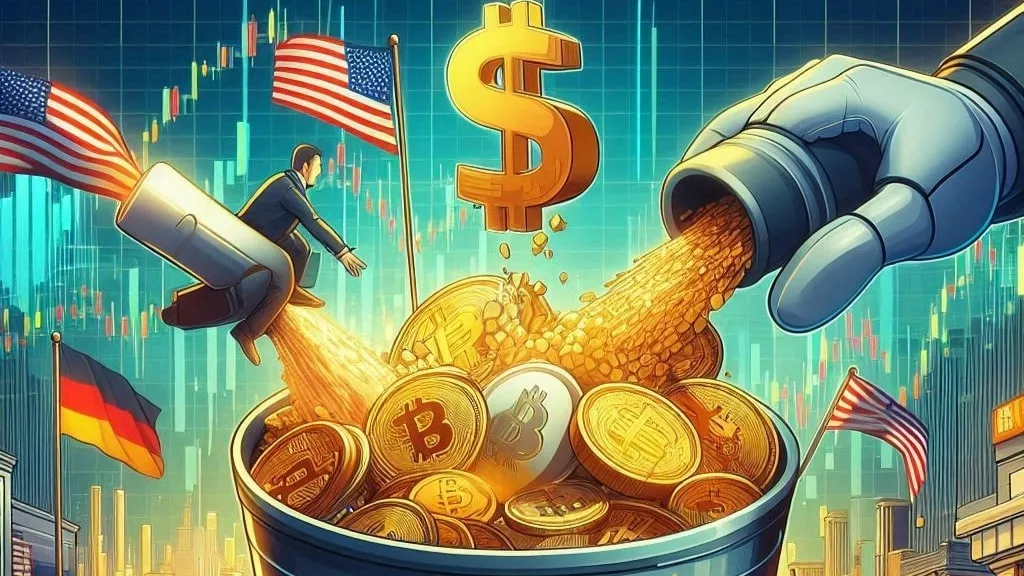
In a year marked by significant transformations, Asia’s crypto regulatory scene witnessed a profound evolution. 2023 positioned Hong Kong and Singapore as pivotal players in shaping the region’s crypto landscape, drawing global crypto firms seeking fertile ground for expansion.
Hong Kong, in particular, emerged as a burgeoning hub for crypto and Web3 innovation. The city took decisive steps, launching its crypto licensing regime for virtual asset trading platforms in June. This move paved the way for licensed exchanges like HashKey and OSL to provide retail trading services. Notably, the Securities and Futures Commission updated its guidance, expanding investor access to crypto ETF engagement and overseeing digital asset tokenization activities.
Christopher Hui, Secretary for Hong Kong’s Financial Services and the Treasury, reiterated the government’s commitment to fostering Web3 growth despite recent regulatory actions on exchanges like JPEX. “Regulatory actions won’t deter our determination,” emphasized Hui, underlining Hong Kong’s competitive edge for compliant digital asset businesses.
Donald Day, COO of VDX, a Hong Kong-based crypto platform, praised the stability and reliability of Hong Kong’s regulatory framework, emphasizing its appeal for establishing and running compliant digital asset ventures.
Meanwhile, Singapore continued to allure global crypto companies despite facing crises involving players like Three Arrows Capital, Vauld, and Hodlnaut. The Monetary Authority of Singapore (MAS) remained steadfast in regulating crypto firms, granting licenses to Coinbase, Circle, and signaling growth opportunities for Gemini, set to expand its Singapore headcount.
Further enhancing its tech landscape, Grab, Southeast Asia’s renowned ride-hailing super-app, ventured into Web3 by integrating NFT wallets and collaborating with MAS on a pilot study exploring digital assets’ utilization.
In addition to Hong Kong and Singapore, countries like Japan, South Korea, and Taiwan made significant strides in crypto regulations. Japan revised its Payment Services Act to ensure stablecoin investor protection, encouraging partnerships like Circle’s collaboration with SBI Holdings.
South Korea’s Busan city geared up for the launch of Busan Digital Asset Exchange, while the country’s National Pension Service displayed confidence in the crypto industry, investing in Coinbase shares. Taiwan proposed new regulations, requiring crypto platforms to apply for permits, aiming for enhanced oversight and regulatory compliance.
Despite progress, Taiwan’s regulatory guidelines, like self-supervisory rules for the crypto sector, lack enforceability, signaling room for further legislative clarity and development.
As 2023 concludes, Asia’s crypto landscape stands as a dynamic canvas of evolving regulations and burgeoning hubs, showcasing the region’s embrace of digital innovation and its impact on the global crypto economy.
Christopher Hui, Secretary for Hong Kong’s Financial Services and the Treasury, echoed the government’s resolute dedication to Web3 expansion during the Hong Kong Fintech Week. Despite regulatory actions on the JPEX crypto exchange, Hui reinforced their unwavering determination, emphasizing the competitiveness of Hong Kong’s regulatory framework for compliant digital asset businesses.
Simultaneously, Singapore maintained its allure for global crypto entities, attracting a multitude to establish bases within its jurisdiction. Despite facing challenges involving crypto players’ setbacks, the Monetary Authority of Singapore persisted in its commitment to regulate, granting licenses to prominent firms like Coinbase and Circle. Grab, Southeast Asia’s popular ride-hailing app, also embraced Web3 by engaging in a pilot study on digital assets with the MAS and integrating NFT wallets.
Beyond these financial centers, Japan, South Korea, and Taiwan made significant strides. Japan revised regulations, seeking stability for stablecoin investors and fostering partnerships like Circle’s collaboration with SBI Holdings. South Korea’s Busan saw ventures into digital asset exchanges, while its National Pension Service invested in Coinbase shares, showcasing confidence in the crypto sector. Taiwan, amidst regulatory formulation, proposed a draft crypto act to regulate platforms and reinforce anti-money laundering efforts.
As the year draws to a close, the Asian crypto landscape remains in flux. Hong Kong and Singapore’s proactive approaches in establishing robust regulatory frameworks have set benchmarks for the region. The developments in Japan, South Korea, and Taiwan underscore a collective effort toward creating conducive environments for the burgeoning crypto industry.


Get the latest Crypto & Blockchain News in your inbox.